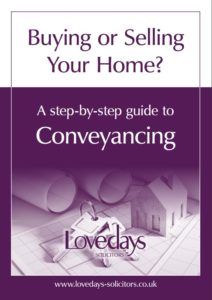- Home
- Personal Services
- Advice for Employees
- Conveyancing
- Dispute Resolution
- Boundary Disputes
- Dealing with Rent Arrears
- Japanese Knotweed Claims
- Landlord and Tenant Disputes
- Landlord Harassment & Illegal Eviction
- Negligence Claims Against Builders & Developers
- New Build Property Disputes
- Noisy Neighbour Disputes
- Personal Debt Collection
- Property Misrepresentations Claims
- Rights of Way Disputes
- Section 21 No Fault Evictions
- TOLOTA Claims
- Tree & Hedge Neighbour Disputes
- Divorce and Separation
- Family Law
- Lasting Power of Attorney
- Licensing
- Probate Law
- Trusts
- Wills
- Business Services
- Reviews
- Make An Enquiry
- Cost and Service Information
- About Us
- Contact Us
Domestic Abuse Legal Aid
Suffering as a result of domestic abuse can be an extremely challenging time, and it can often leave people in a very vulnerable position. Domestic abuse can include incidents such as threatening behaviour, violence or psychological, physical, sexual, financial or emotional abuse. This applies to adults who have been intimate partners or family members.
If you have been a victim of domestic abuse and you cannot afford to pay for legal costs, then you may be entitled to legal aid, if you have sufficient evidence of your situation. This applies to couples who have been married or in a civil partnership, those who have agreed to be married or enter into a civil parentship, couples who live together, those who have an intimate personal relationship of a significant duration, relatives or parents of the same child.
At Lovedays Solicitors, we can provide you with all the legal support that you need, and every case will be handled with discretion and sensitivity.
What is Domestic Abuse Legal Aid?
Legal aid exists in order to allow those who are trapped as a result of domestic abuse or have escaped it to be in receipt of professional legal advice and representation. This gives victims the power to work their way through a legal system that can often be complicated, at a time in their lives where they are in need of the most help.
Those who are domestic abuse survivors may not have access to the finances that they need in order to get this support, and so legal aid can be given to those who can provide evidence of their domestic abuse experiences.
The evidence that is required can take the form of photographs or videos which document any visible injuries or damage to property as well as any emails or messages which contain evidence of abuse or could be seen as threatening or harassment. Medical records which detail injuries or hospital visits as a result of abuse can be supplied as evidence, as can incident diaries which details the times, locations and descriptions of abuse. Court orders or convictions related to the abuser can also be used as evidence.
{quote}
Types of Legal Aid Available
There are different types of legal aid available depending on the situation. This means it can support you to get professional advice on your rights and options according to your own specific circumstances, and it can also ensure that you can receive help with negotiations and preparing any paperwork that you might need.
This can include ensuring that you have access to a legal professional who can represent you in court should you need it. In addition to this, you can also receive advice and help with other related family matters such as finances, mediation, divorce and when a child is at risk of being taken into care.
At Lovedays Solicitors, we understand what a difficult time this can be, and will do all that we can to support you. This includes helping you to get the protection that you need from further abuse. We can also offer you support on a range of matters at a time where your mental, physical and emotional health have all been impacted on by a very difficult situation.
If there are children involved in your relationship, then we know that these will be your first priority, and so we will discuss with you the best ways to get support for your children. We can also advise you on the type of evidence of abuse that you will need to gather and the best way in which to do this.
There have recently been certain expansions that have been made to the legal aid provision for domestic abuse survivors. This can include special provision for housing benefit, a break from job seeking and work preparation requirements for up to 13 weeks and an advance of up to 100% of your expected Universal Credit monthly entitlement. When you apply for legal aid, your financial eligibility will be examined although the way asset assessments are conducted has now been eased.
How to Apply for Domestic Abuse Legal Aid
If you feel that you may need the help of domestic abuse legal aid to keep you safe, then you should consult a solicitor who has experience in domestic abuse cases, like those at Lovedays Solicitors.
They can help to assess you situation and can determine whether you are eligible for legal aid. You will then need to gather all of the necessary information together regarding your financial situation as well as the evidence of the domestic abuse that toy have suffered. This allows your solicitor to look at your income, assets, and other financial factors to determine if you qualify for legal aid.
Your application will need to be supported by your proof of identity, any financial documents including pay slips, bank statements or tax records and any evidence of domestic abuse, such as photographs, police records, court orders or medical records. You should also include any relevant correspondence that might help you.
At this point, your solicitor will be able to help you put the legal aid application together to ensure it is correct and contains all of the necessary information. This application will be reviewed by the Legal Aid Agency, and you will be informed whether you have been successful or not.
The team at Lovedays Solicitors have vast amounts of experience in dealing with domestic abuse cases and can help with your application for legal aid to make the process quicker, less stressful and more successful.
How Lovedays Solicitors Can Help
Being a victim of domestic abuse can be a terrifying time both in regards for your safety and the fear of what your future might hold. At Lovedays Solicitors, we can help you to get through this step by step thanks to our experience and expertise.
We will listen to you and help you to apply for the legal aid that can help you and can put the wheels in motion to get you to safety and protect you from any further abuse. Get in touch with the friendly team at Lovedays Solicitors now to find out more about our friendly, professional and confidential service.
The legal team at Lovedays Solicitors are experienced in handling domestic abuse cases and understand exactly what you are going through. They are both friendly and professional, and will treat you with sensitivity at all times.
Their role is to listen to you and then provide professional legal advice based on your own individual circumstances and can help you with everything from applying for legal aid to getting you to safety.
They can apply for non-molestation or occupation orders to prevent your partner from threatening you and to dictate who can live in the family home. They can also deal with a breach of orders and can represent you in a closed court situation.
We can advise you on the evidence that will be needed in order to support your case and can help you to find the best way to gather this. Our solicitors have worked with other domestic abuse survivors to give you reassurance and closure as well as legal support. We always work to the highest levels of confidentiality, so that you can be sure that you have someone you can trust at such a difficult time.
{quote}
Frequently Asked Questions
We can help to advise you whether your legal aid application is likely to be successful before you apply for it. If it is denied, then you can appeal the decision and our solicitors can assist you with this.
Domestic abuse legal aid is available to anyone who has been married, in a civil partnership, engaged, living together or in an intimate relationship for a significant period of time. It is also available to family members.
Domestic abuse can take many forms, including physical, mental and emotional abuse or financial control.
Dealing with Joanne at Lovedays Family department was always a positive experience. She made sure I fully understood my legal situation and her communication style, always so clear and concise, helped me navigate my way through a difficult time.
Get Support Today
If you or someone you know is experiencing domestic abuse, don't face it alone. Lovedays Solicitors is here to provide the compassionate and professional support you need. Our experienced team will guide you through every step, from applying for legal aid to ensuring your safety and protecting your rights.
Reach out to us today for a confidential consultation, and let us help you secure the peace of mind and protection you deserve. Contact Lovedays Solicitors now and take the first step towards a safer, brighter future.

Free Guide
If you don’t know your leasehold from your freehold, then get our Free Conveyancing Guide. It contains details about the steps you will need to take with any property transactions. The Guide giving you detailed guidance on what your lawyer will be doing for you and what to look out for.


Lovedays Solicitors, Potter and Co Solicitors and Andrew Macbeth Cash and Co Solicitors are the trading names of Derbyshire Legal Services Limited which is a company registered in England and Wales under company number 08838592. Registered office Sherwood House, 1 Snitterton Road, Matlock, Derbyshire, DE4 3LZ.
Authorised and Regulated by the Solicitors Regulation Authority under SRA ID number 637916.
-
(01629) 582308
-
This email address is being protected from spambots. You need JavaScript enabled to view it. -
Sherwood House
1 Snitterton Road
Matlock
Derbyshire
DE4 3LZ
© Copyright 2019 Derbyshire Legal Services Limited | Website by WebWorks Design